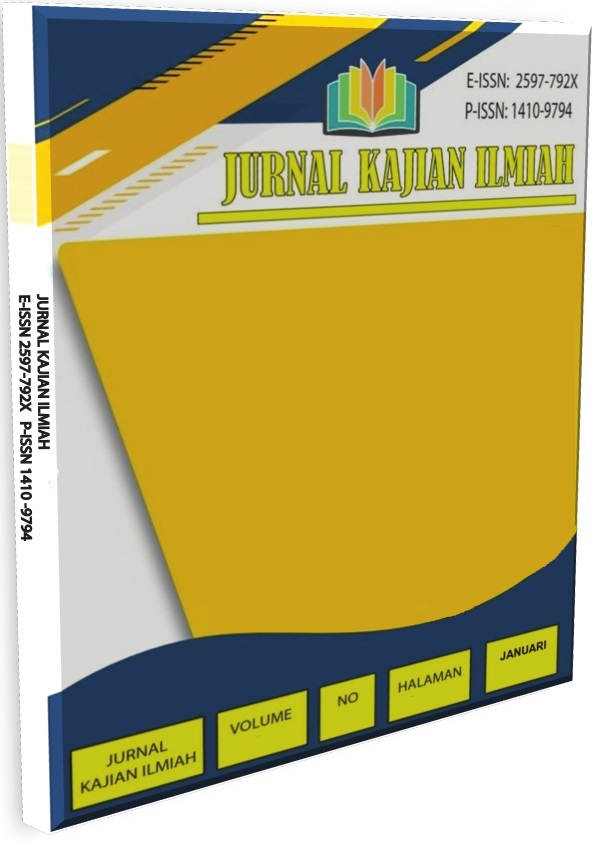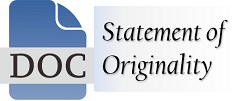Hardiness Dan Resiliensi Terhadap Intensi Wirausaha Pada Mahasiswa
DOI:
https://doi.org/10.31599/vmxdhm93Keywords:
Entrepreneurial Intention, Hardiness, Resilience,StudentAbstract
Several campuses organize Independent Entrepreneurship, this is done to look for potential leaders and business innovators who can reduce the unemployment rate in Indonesia, this is called intention. Intention is defined as something that exists within a person which refers to the desire to carry out certain behavior. Students who focus on pursuing entrepreneurship are faced with various challenges such as uncertainty, all kinds of risks and even failure. Developing this intention in students is what will influence the process of choosing a career as an entrepreneur. Students who run entrepreneurship tend to have a higher level of resilience. Of course, this requires high hardiness which will make individuals strong in their achievement of becoming an entrepreneur. This research took data from 118 individuals who used the internet and collected it by distributing the Entrepreneurial Intention Questionnaire (EIQ) questionnaire via social media. The data was analyzed and the results showed that there was a significant positive relationship between resilience and hardiness on entrepreneurial intentions. Every student who wants to start a new business must have an attitude of hardiness, especially strong commitment. The higher the level of hardiness, the lower the level of stress.
Downloads
References
American Psyhological Association (APA). (2022). Resilience.
Artaningih, N. K. S., & Mahyuni, L. P. (2021). Pengaruh Kepribadian Hardiness, Lingkungan Keluarga, dan Pendidikan Kewirausahaan terhadap Intensi Berwirausaha Generasi Milenial. Forum Ekonomi, 23(3), 582–592. https://doi.org/10.29264/jfor.v23i3.10030
Azizah, J. N., & Satwika, Y. W. (2021). Hubungan Kepribadian Hardiness Dengan Stres Akademik Pada Mahasiswa Kedokteran Universitas Malahayati Selama Pandemi Covid 19. Character: Jurnal Penelitian Psikologi, 9(2), 194–205. https://doi.org/10.26877/empati.v9i2.11584
Bartone, P. T., Sandvik, A. M., Hansen, A. L., Hystad, S. W., & Johnsen, B. H. (2015). Psychopathy, anxiety, and resiliency - Psychological hardiness as a mediator of the psychopathy-anxiety relationship in a prison setting. Personality and Individual Differences, 72(January), 30–34. https://doi.org/10.1016/j.paid.2014.08.009
Bestari, N. P. (2023). Induk TikTok Diam-diam PHK Ratusan Karyawan! CNBC Indonesia.
Dewinda, H. R., & Khairiyah, U. (2021). Resiliensi Mahasiswa Yang Berwirausaha Dan Tidak Berwirausaha. Jurnal RAP (Riset Aktual Psikologi), 12(2), 223–232. https://doi.org/10.24036/rapun.v12i2.
Fakhriyani, D. V. (2021). Peran Resiliensi Terhadap Kesehatan Mental: Penyesuaian Psikologis Selama Pandemi Covid-19. Proceedings of the 5th International Conference on Islamic Studies (ICONIS) 2021, 19, 465.
Fishbein, M., & Ajzen, I. (1975). Belief, Attitude, Intention and Behavior: An Introduction to Theory and Research. Contemporary Sociology, 6(2), 244. https://doi.org/10.2307/2065853
Gito, M., Ihara, H., & Ogata, H. (2013). The relationship of resilience, hardiness, depression and burnout among Japanese psychiatric hospital nurses. Journal of Nursing Education and Practice, 3(11), 12–18. https://doi.org/10.5430/jnep.v3n11p12
Hanafiah,R. Supyan Sauri, D. M. O. A. (2021). Pelatihan Software Mendeley Dalam Peningkatan Kualitas Artikel Ilmiah Bagi Mahasiswa. Jurnal Karya Abdi, 14(1), 1–13.
Hendriani, W. (2016). No Title.
Herliany, K. (2023). Hardiness Pada Mahasiswa yang Berwirausaha. Journal of Creative Student Research (JCSR), 1(2), 240–264.
Indarti, N., & Rostiani, R. (2008). Intensi Kewirausahaan Mahasiswa: Studi Perbandingan Antara Indonesia, Jepang Dan Norwegia 1. Jurnal Ekonomi Dan Bisnis Indonesia, 23(4), 369–384.
Katz, J., & Gartner, W. B. (2016). Properties of emerging organizations. Entrepreneurship as Organizing: Selected Papers of William B. Gartner, 13 (2)(July), 47–59. https://doi.org/10.5465/amr.1988.4306967
Kobasa, S. C. (1979). Stressful life events, personality, and health: An inquiry into hardiness. Journal of Personality and Social Psychology, 37(1), 1–11. https://doi.org/10.1037/0022-3514.37.1.1
Kurniawan, I. S. (2017). Pengaruh Kebutuhan akan Prestawsi, Efikasi Diri, Kesiapan Instrumentasi dan Faktor Demografis pada Intensi Kewirausahaan Mahasiswa Pemenang Program Mahasiswa Wirausaha. Jurnal Managemen Universitas Sarjanawiyata Tamansiswa, 7(2), 83–96.
Linan, F. (2008). Skill and value perceptions: how do they affect entrepreneurial intentions? International Entrepreneurship and Management Journal, 4(3), 257–272. https://doi.org/10.1007/s11365-008-0093-0
Masten, A. S., Powell, J. L., & Luthar, S. S. (2003). A resilience framework for research, policy, and practice. Resilience and Vulnerability: Adaptation in the Context of Childhood Adversities, 1–26. https://doi.org/10.1017/CBO9780511615788.003
Nurhidayati, N., & Utari, D. T. (2018). Model Intensi Kewirausahaan Dengan Pertimbangan Pasar Kerja, Dukungan Sosial, Dan Self Efficacy Terhadap Pengambilan Keputusan Karir. Jurnal Ekonomi Dan Bisnis, 19(2), 111–120. https://doi.org/10.30659/ekobis.19.2.111-120
Reivich, K., & Shatté, A. (2002). The resilience factor: 7 essential skills for overcoming life’s inevitable obstacles. Broadway books.
Saputra, R. D. (2016). Faktor-Faktor Yang Mempengaruhi Intensi Berwirausaha Mahasiswa Universitas Brawijaya Malang. Jurnal Imiah Mahasiiswa FEB, 3(2).
Sasmita, N. O., & Afriyenti, L. U. (2020). Resiliensi Pascabencana Tsunami. INSAN Jurnal Psikologi Dan Kesehatan Mental, 4(2), 94. https://doi.org/10.20473/jpkm.v4i22019.94-101
Setya, D. (2022). 17 Kampus Penyelenggara Wirausaha Merdeka, Yuk Belajar Jadi Entrepreneur!
Susilawati, I. R. (2014). Can Personal Characteristics, Social Support, and Organizational Support Encourage Entrepreneurial Intention of Universities Students? European Journal of Social Sciences, 41(4), 530–538.
Tim Redaksi. (2022). No Title.
Vemmy, C. (2013). Faktor-faktor yang mempengaruhi intensi berwirausaha siswa SMK. Jurnal Pendidikan Vokasi, 2(1). https://doi.org/10.21831/jpv.v2i1.1022
Zimmerer, T. W., & Scarborough, N. M. (2008). Kewirausahaan dan Manajemen Usaha Kecil (5th ed.). Salemba Empat.












_-_Copy1.jpg)




